Smart Meters and Holiday Homes – where do you stand?
Last Updated on January 10, 2025 by admin
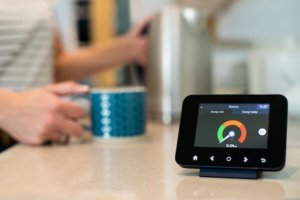 What are Smart Meters and are there benefits of installing them in your holiday home? If there was a simple way for you to monitor, even reduce the gas and electricity bills in your holiday home or cottages would you do it? The answer for most people would be yes, so when the current Government’s Smart Meter Scheme was announced as part of the Conservative’s election manifesto in 2017 it was an exciting initiative for many; the opportunity to not only potentially cut costs on gas and electricity bills but also become more efficient and reduce the impact we have on the environment as a part of the process.
What are Smart Meters and are there benefits of installing them in your holiday home? If there was a simple way for you to monitor, even reduce the gas and electricity bills in your holiday home or cottages would you do it? The answer for most people would be yes, so when the current Government’s Smart Meter Scheme was announced as part of the Conservative’s election manifesto in 2017 it was an exciting initiative for many; the opportunity to not only potentially cut costs on gas and electricity bills but also become more efficient and reduce the impact we have on the environment as a part of the process.
However, two years on and not everything has quite gone to plan. Here’s our update on the roll out of smart meters and whether or not it might be time for you to make the change in your holiday home…
What was the plan for the rollout of smart meters?
Despite energy firms warning that the technology wasn’t ready, they were initially told that every home should have smart meters installed by the end of 2020. As we approach the end of 2019 that deadline has now been delayed by a further four years until the end of 2024 (by which time they are targeting installation in 85% of homes). It is now anticipated that only 50% of homes will have their smart meters installed by the original deadline date amid souring costs and technological setbacks.
Why would you want a smart meter in your holiday home?
The general idea of a smart meter is that the more information you have at your fingertips, the better. The displays help you understand where energy is being spent and make appropriate savings or alterations to your lifestyle. This could be a particularly attractive concept for holiday homeowners, where they aren’t the person using the energy and often live a good distance from the property in question. The key benefits include:
- Seeing how much energy your holiday home is spending in near-real-time, via the display or an app.
- New automatic and regular meter readings can help to make your holiday home electricity bills more accurate compared to their estimated counterparts.
- New versions also enable simpler and easier tariff switching to keep bills lower, with new versions even allowing you to change supplier.
Whilst all of these benefits are geared toward reducing bills, Andrea Leadsom’s Department for Business, Energy and Industrial Strategy has however estimated that customers will not begin to make savings from smart meters until 2022 and they will gain only £36 a year by 2034.
Do you have to have a smart meter at home or in your holiday letting property?
Although customers can turn down the offer of smart meters, firms are faced with fines if they don’t promote them. These fines have brought about some concerns that energy users are being blackmailed into ensuring high levels of uptake. In turn this has led to potential issues such as companies offering more attractive tariffs to those with smart meters in order to ensure households get on board.
Is it time to install smart meters in holiday homes?
In principal, the potential of lowering bills and gaining a better understanding of when and where your energy is being used makes the idea of smart meters for holiday homes a good one. However, there have been a number of technical issues with some meters. Some homeowners have found that their device had stopped working after switching supplier. There have also been reports that display screens have broken within a short period of time.
It’s therefore vital that you do your research before making the move; has the meter your provider is offering had positive reviews from other users? Are the tariffs for smart meter users advantageous compared to your current rates? Are they offering to install the meter for free? If the answer to all of these is yes, then it may well be right time to install one.
Boshers offer specialist holiday home insurance to owners across the UK. Need an insurance quote for your holiday let? Give us a call on 01237 429444 and we’ll be happy to answer any questions you have.

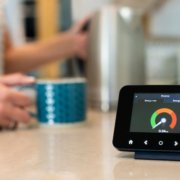
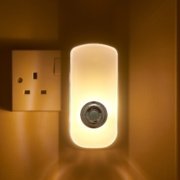

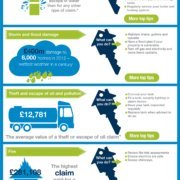

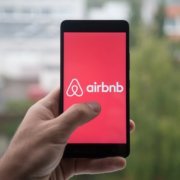



For clarity – version 1 smart meters (SMETS1) were energy supplier specfic, and were installed up to the 15th March 2019 ( they could still be installed after this date but there would be no incentive – so they weren’t). SMETS2 are supplier agnostic so you can change suppiler without problem. Also the ‘smarts’ are in the bits of kit that attach to the meter, not the display as the picture suggests. We have SMETS2 fitted and no display and the supplier can still read our meter, meaning we pay for the energy we use not an estimated value ( which has always been way more that we use).
Many thanks for your feedback, since posting this article we have had SMETS2 fitted for both our electricity supply and gas supply at home. The electricity usage is showing on the display which certainly focuses your mind on how much energy you are using. Interestingly our supplier said it could take upto two weeks for the information on the gas usage to be displayed.
We have recently had smart meters in our two holiday apartments, which we were required to do as a condition of a better tariff. So far so good. However, when I went to read the meter when our winter let tenant I found it as good as impossible to get the reading for off-peak. Eventually I logged into my account with the provider and using their “text to an agent” I managed to get a reading.
I do not have a smart meter in my holiday rental property and I don’t intend to get any installed – be it for electric, gas or, possibly in the future, water.
The reason is that they use electromagnetic radiation in order to operate the in-house display and to send consumption information to the suppliers. The signals generated can cause an adverse health reaction to those who are intolerant to exposure to electromagnetic radiation and I want my property to be available to all guests and not to make them suffer any adverse reaction when staying there.
Wi-fi also uses electromagnetic radiation in order to function and although I have wi-fi in the propery (because it’s what guests expect) I post warning notices about the use of wi-fi and have ethernet cables for hard wired broadband internet connection for those who want a more reliable, faster and safer connection.
Not many people are aware of the health problems that can be caused by exposure to electromagnetic radiation. Slowly the UK is beginning to wake up to the issue and very recently a social worker has been awarded ‘early ill-health retirement’ and ‘Employment Support Allowance’ on the basis of Electromagnetic Hypersensitivity (EHS)’ . You can read about this case at Press-Release-EHS-Social-Worker-granted-long-term-ill-health-pension-UK-Named-further-detail-included.pdf (phiremedical.org)
Incidentally, I do monitor electric and gas consumption on a weekly basis on changeover days. There is no pattern that I can establish and the electric consumption varies from 34 units per week right up to 77. It doesn’t seem to be based on the number of guests and I wonder whether it is guests using my electricity to charge their electric vehicles which accounts for the wide variation! The property takes up to 8 guests so most of my bookings are for multi-generation families with two or three cars.